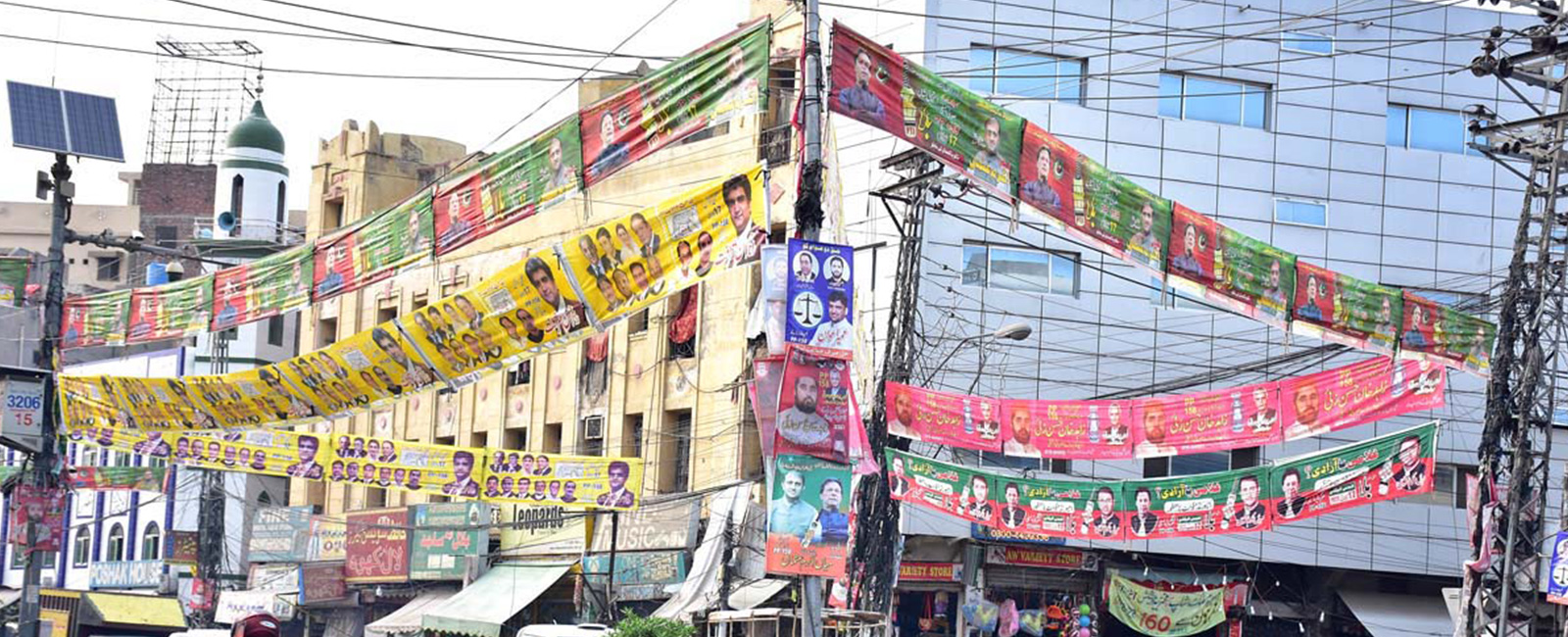Conundrum: Can KP, Punjab polls somehow be shelved?
As centre seemingly tries to find ways to delay polls in two provinces, Geo.tv reaches out to experts to understand whether it's possible or not

Interim setups in both Punjab and Khyber Pakhtunkhwa have settled in after the former prime minister Imran Khan — in a gambit to force the government to hold snap polls— hit the two provincial assemblies like a wrecking ball— but uncertainty over if and when a vote will be held is far from over.
This has now spurred an election discourse in the country with an emphasis on by-elections, to be held for the 93 National Assembly seats vacated by Pakistan Tehreek-e-Insaf (PTI) lawmakers after quitting the assembly en masse last April.
Discussions largely concentrating on the possibility of a deferment of polls, have already begun churning out fodder for debates regarding the future of Pakistan’s politics.
The leadership of the Pakistan Democratic Movement (PDM) also huddled on January 28 to discuss a “new electoral strategy” for the polls to be held in the two provinces as well as for seats of the parliament’s lower house.
The Election Commission of Pakistan (ECP), on the other hand, has announced its schedule for conducting the NA by-elections for 33 seats on March 16 which includes constituencies from Karachi, Rawalpindi, Islamabad, Lahore, Multan, and other cities.
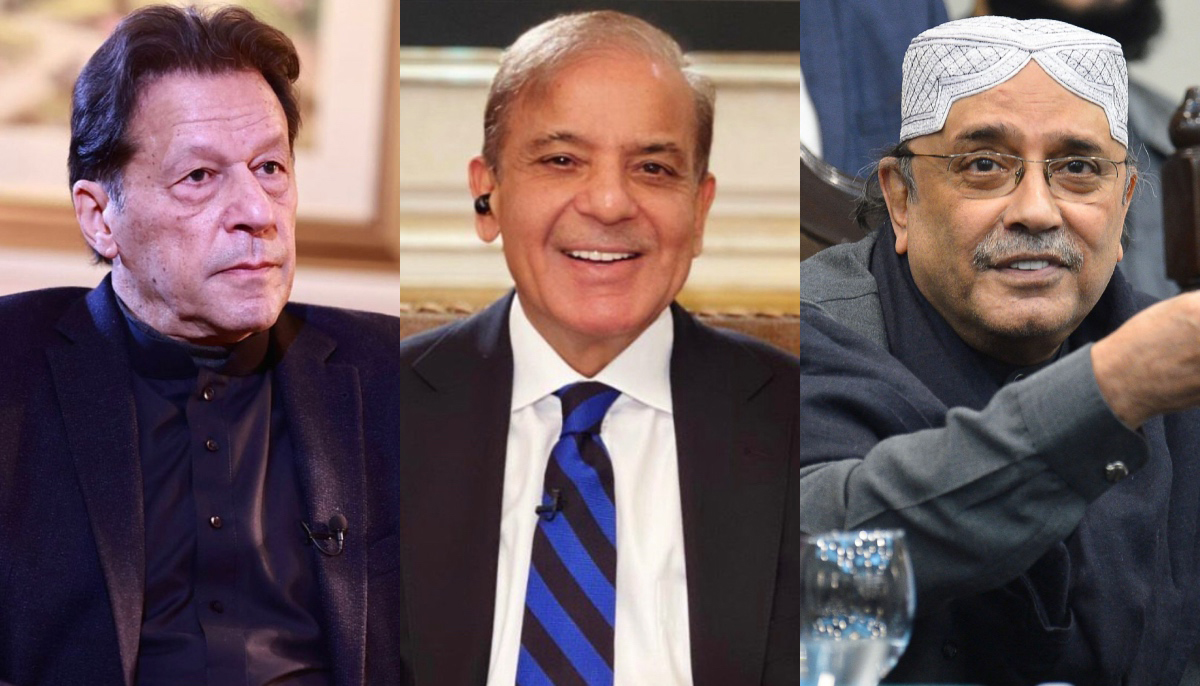
Meanwhile, the Pakistan Bureau of Statistics (PBS) will also kick-start its seventh digital census on March 1. It will conclude after a month’s time and results will be released on April 30. The ECP has also issued a clarification requiring six months for carrying out the delimitation of constituencies as per the new census.
According to the Constitution of Pakistan, elections on the National Assembly seats should be held within 60 days — for which the schedule has been issued by the ECP, while the deadline to conduct polls in Punjab and KP is 90 days.
However, the governors of both provinces — Baligh Ur Rehman in Punjab and Haji Ghulam Ali in KP — are yet to approve a date for the said elections, drawing severe criticism from the PTI.
With the political atmosphere in both provinces heating up following the election debate, it is pertinent for the people to understand how may the situation unfold and how can the elections in KP and Punjab be impacted.
To explore the constitutional provisions, Geo.tv approached election experts and lawyers to get their analysis on the matter and find out if there is any possible room to defer the provincial polls.
Constitutional provisions
Ahmed Bilal Mehboob, President of the Pakistan Institute of Legislative Development and Transparency (PILDAT), told Geo.tv that the country’s constitution does not have any provision to postpone the elections.
“It is necessary to have the elections conducted within 90 days once the assemblies are dissolved and there is no exception in it," he said, but also noted that the polls had been delayed in the past due to extraordinary situations, but not for too long.
"There were exceptions in the past. For instance, an emergency situation unfolded after the assassination of Benazir Bhutto [in 2007], impacting the law and order in the country. At the time, the ECP postponed elections, but it was for less than a month. The polls took place anyway,” he said.
“God forbid, if such as situation unfolds then the ECP has the power to make changes to the election schedule. But I don’t see any way other than this,” he stated.
Talking to Geo.tv over the phone, Free and Fair Election Network's (FAFEN) Mudassir Rizvi said in line with the constitution, the elections are bound to take place within 90 days if an assembly is dissolved prematurely.
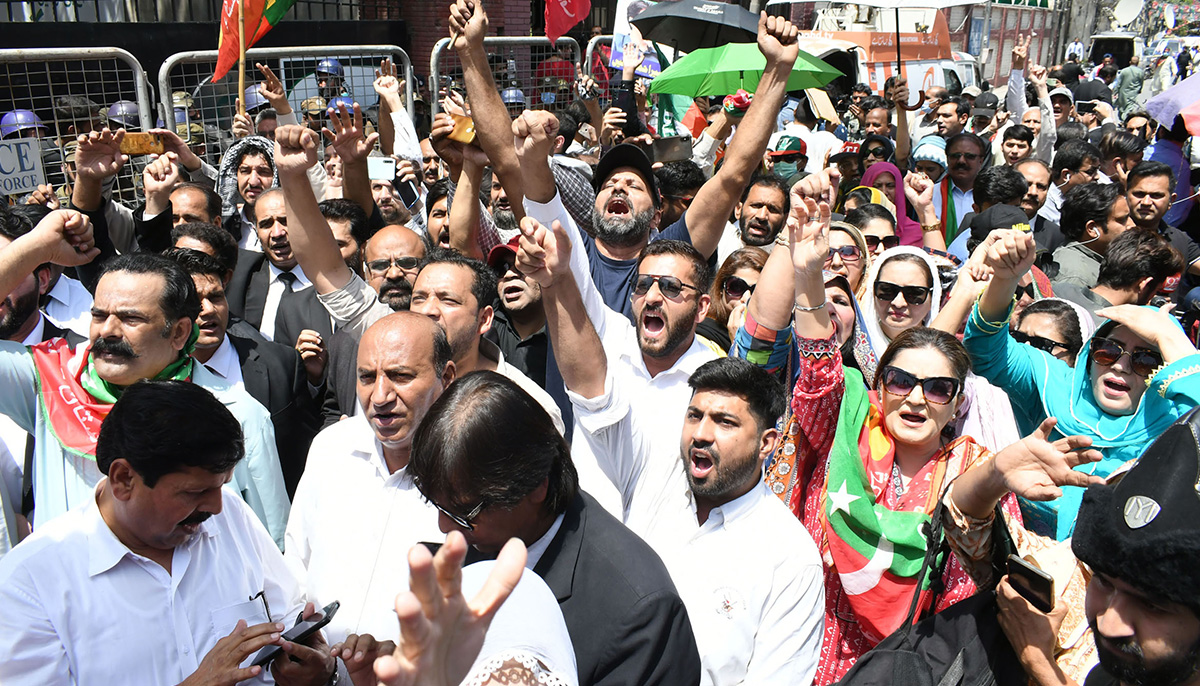
"However, if politicians believe that elections of national and provincial assemblies should take place subsequently, then there is a need for negotiations — not only from the government's side but the opposition as well."
Muhammad Ahmad Pansota — a legal expert, too, was of a similar view.
“The governor is duty-bound to have the elections conducted within 90 days from the dissolution of assemblies. There is absolutely no provision in the constitution whereby he can delay the time. He has to get it done within the predetermined time frame,” he said.
Former ECP secretary Kanwar Dilshad, however, contradicted the other experts and argued that the governor held the power to delay the elections.
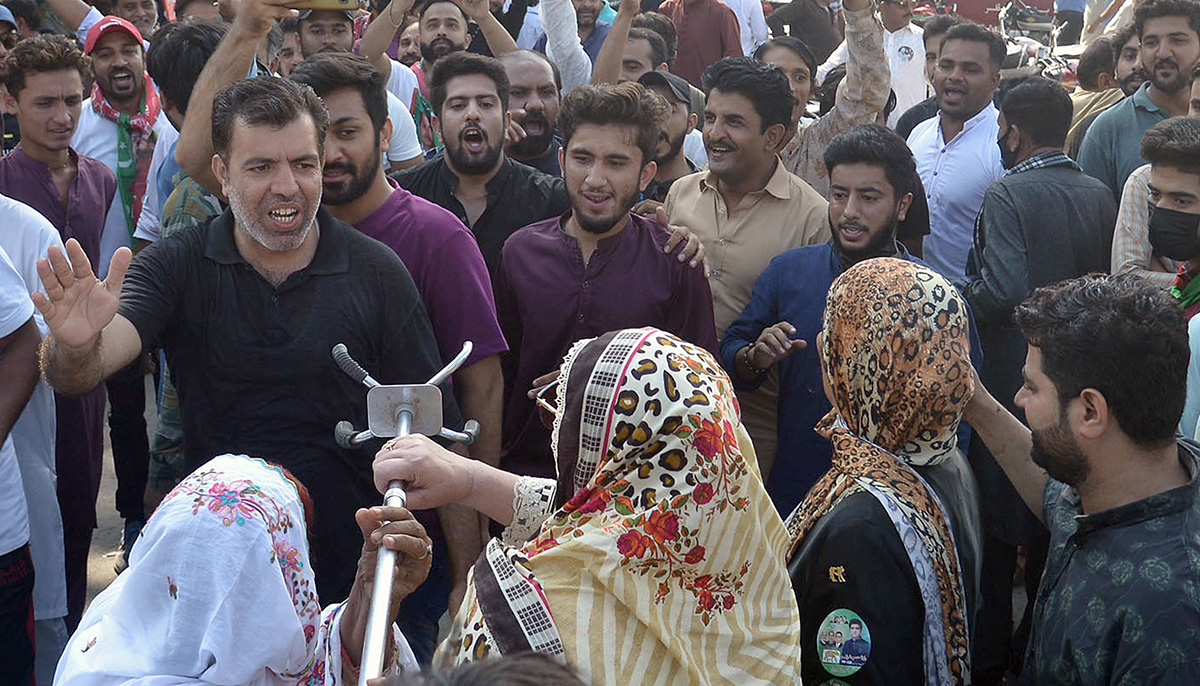
Dilshad said the authority to provide the ECP with a date for the elections lay with the governor — and both the top officials in Punjab and KP were yet to do it. He also maintained that if the governors didn't provide a date, it would not be a violation of the constitution.
“Considering the situation of the province, it is the governor’s decision whether to defer the elections for three or six months. In this situation, I don’t see the elections taking place in Punjab and Khyber Pakhtunkhwa,” the ex-ECP secretary said.
Will census impact election date?
Commenting on whether the polls could face a delay because of the census conducted across the country, the FAFEN spokesperson said there were no "operational" reasons behind the government's stance of delaying the elections till the census and the delimitation of constituencies.
PILDAT's Mehboob, meanwhile, also commented that the constitution did not demand a census to be done for conducting elections.
“Polls are conducted based on the available census data. Delimitation from the 2017 census is available for conducting polls within 90 days for the provincial assemblies which were dissolved and it is according to the constitution,” he said.
The PILDAT president said that even if an administrative decision is made in the Council of Common Interest (CCI) to conduct new elections based on the new census data, it cannot take precedence over the constitution, "which demands elections take place within the designated time".
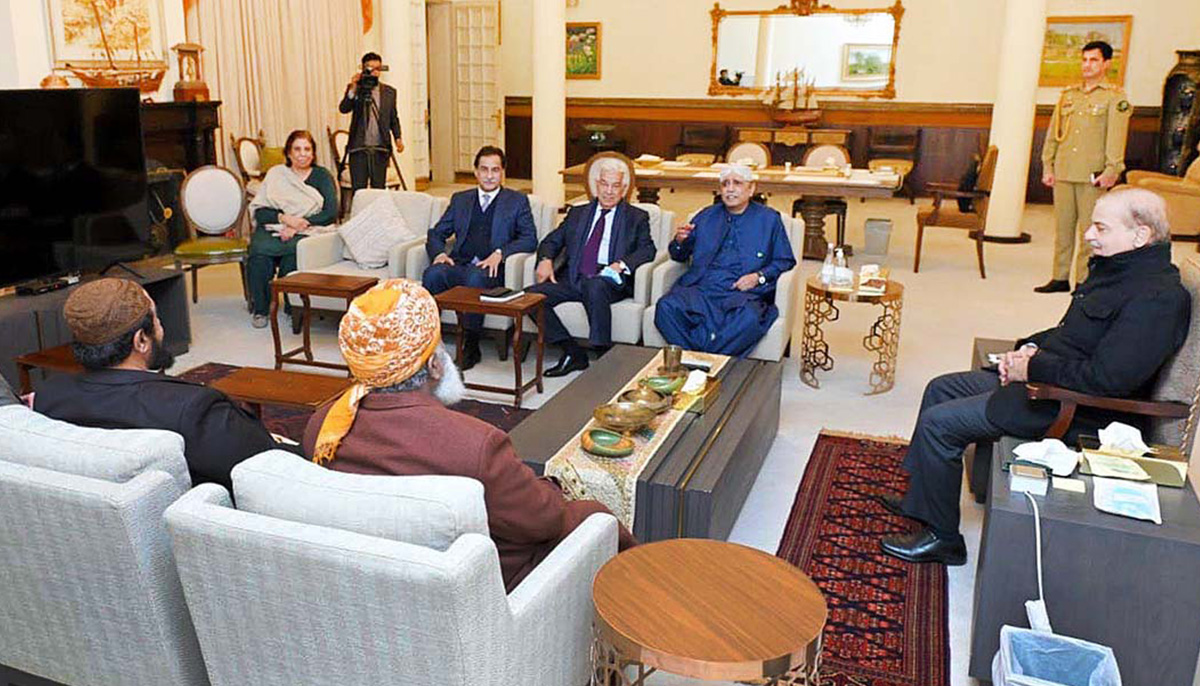
However, he said that the general elections — scheduled in October — could be conducted on the basis of the new census if published in due time ahead of the elections.
“If its results are available by March 31, then the ECP has said it will ensure delimitation and polls will take place in October. But if the results of the census are delayed, then the commission won’t have time to ensure delimitation," he said.
Mehboob added that if the official results of the census were declared in July, "then a clause in the constitution warrants conducting elections on the basis of the new census".
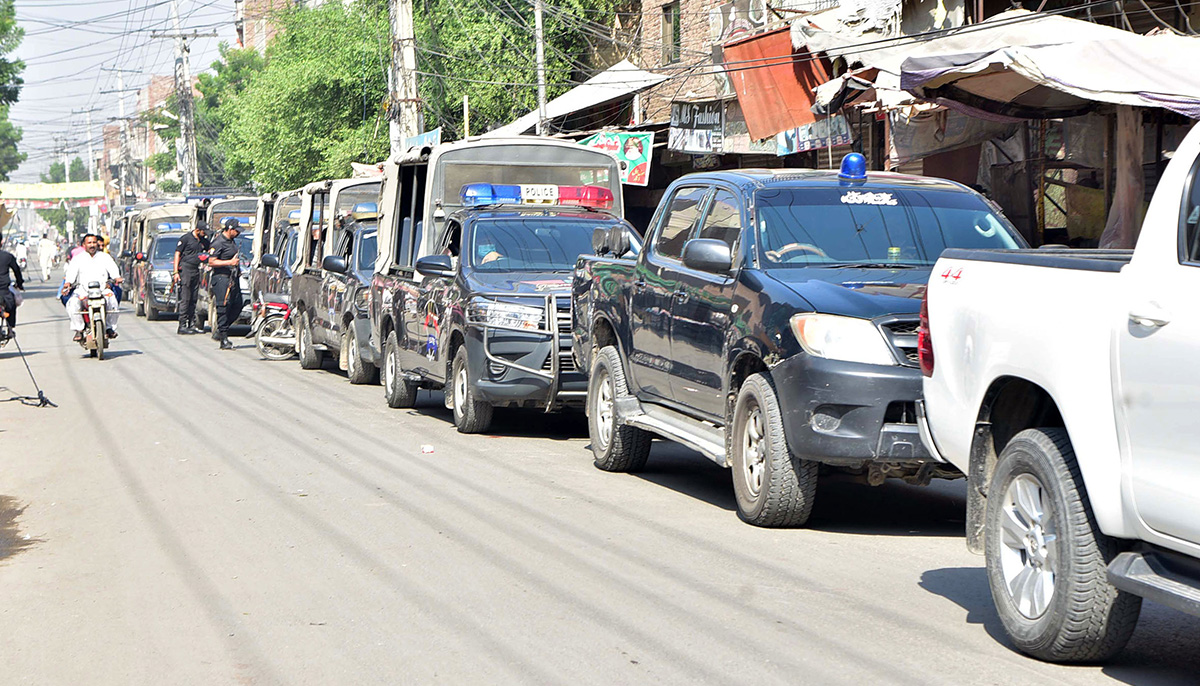
Another clause, consequently, requires conducting an election within 90 days and if the National Assembly finishes its tenure, then the polls are to be held within 60 days.
“It would be a conflict of two constitutional articles on whether the elections should be conducted on the basis of the census or in 60 days,” the head of PILDAT said, highlighting how this would involve the courts in deciding what could be done next.
“The courts will have to do an interpretation of the constitution’s two conflicting requirements. But I think this argument won’t be strong in the provincial elections because the census has not yet started. However, this matter could also go to court and its ruling will be final on whether they want to postpone the elections based on the new census,” he said.
Mehboob opined that the additional benefit, in this case, would be to conduct the elections altogether and the government would try to place the matter before the courts.
“It will be interesting to see whether the courts agree to do this or not,” the PILDAT president stated.
Reiterating his stance on elections not delaying, he maintained that the ECP had suggested a tentative time frame to both governors to pick a date for holding provincial assemblies’ elections.
“There is no need for additional work or any other reason to postpone the elections. If there is a reason, then they will have to approach the court for permission. But I don’t apparently see any justification to delay the elections and on what basis would they go before the court,” he said.
However, FAFEN's Rizvi said there was no space for the postponement of polls in the constitution.
“If the polls are delayed, the people will knock on the doors of courts and it will lead to political turmoil — and we are already witnessing its consequences in the shape of economic downturn,” he said.
The FAFEN spokesperson added the year 2022 saw several interpretations of the constitution, with some of them being "wrong and against the constitutional spirit" and people also got away with it.
"There is a need to debate the constitutional weaknesses and overcome them; then again, this is also a political debate," the spokesperson of the election watchdog said.
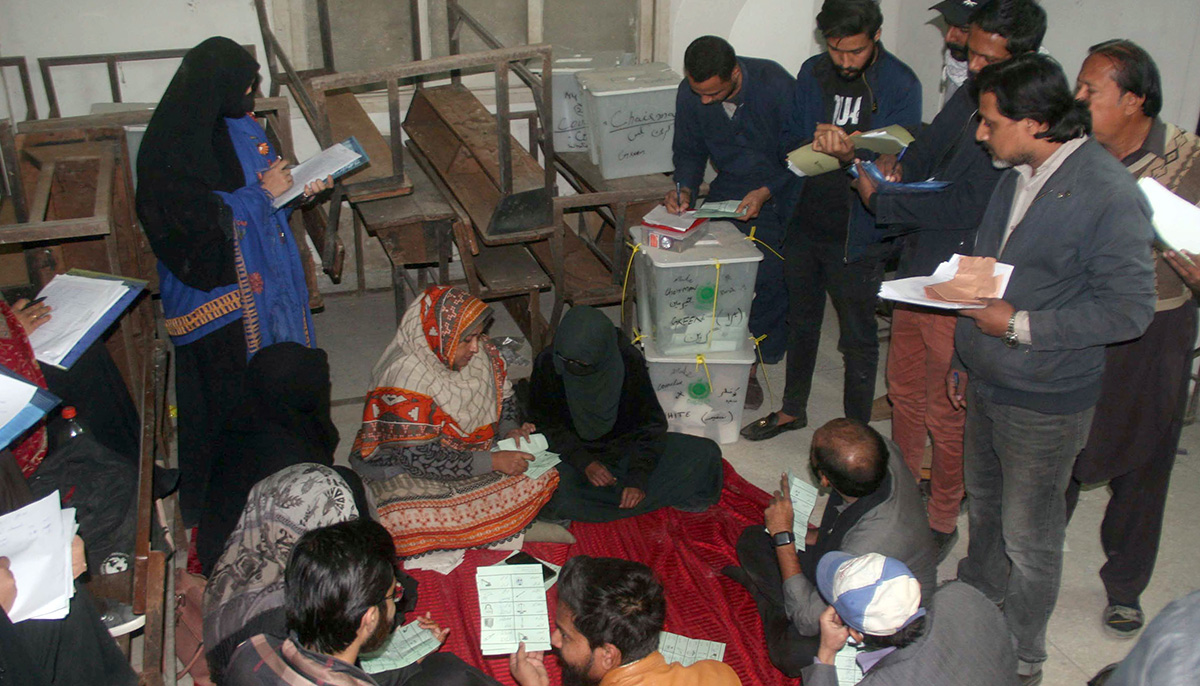
Rizvi suggested that political parties should join heads and allow a one-time exception to delay the election while noting that any unilateral decision would bear no fruits and the country was not capable of handling political turmoil anymore.
On the other hand, Pansota argued that the federal government, however, had the option of evoking an emergency under Articles 232 and 235 whether it was a financial emergency or some other emergency, "but even that goes out of the picture because the situation doesn’t warrant that".
The constitution’s Article 232 warrants a proclamation of emergency on account of the war, internal disturbance, etc, while Article 235 encompasses a proclamation in case of financial emergency.
"An assembly has been dissolved in a way that has been prescribed in the constitution and now the governor is duty-bound to have the elections conducted," the lawyer said.



